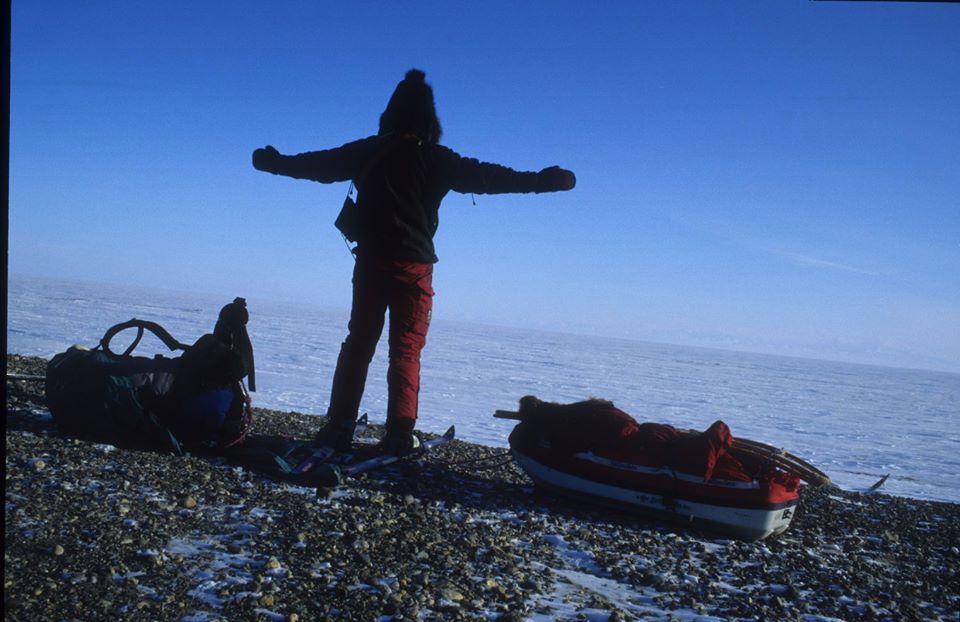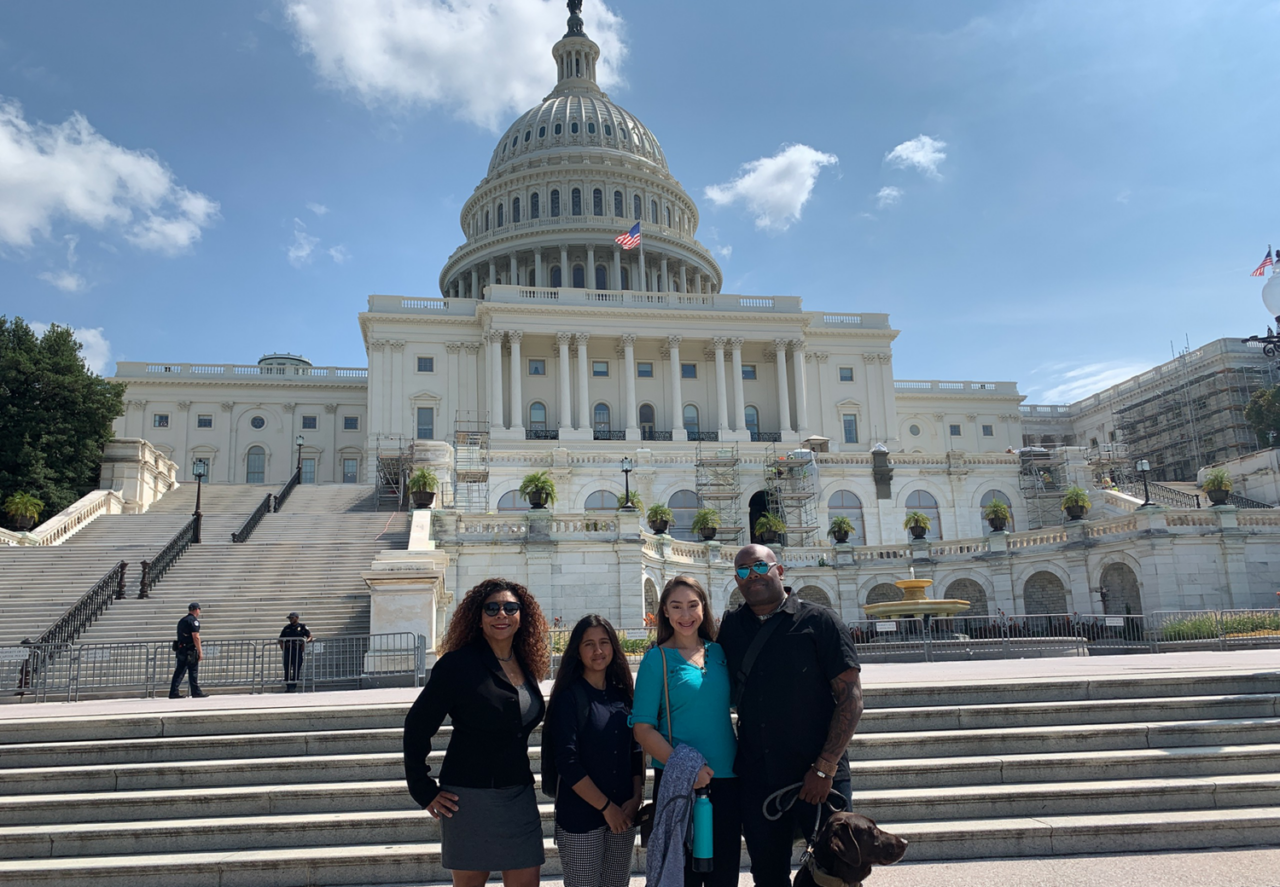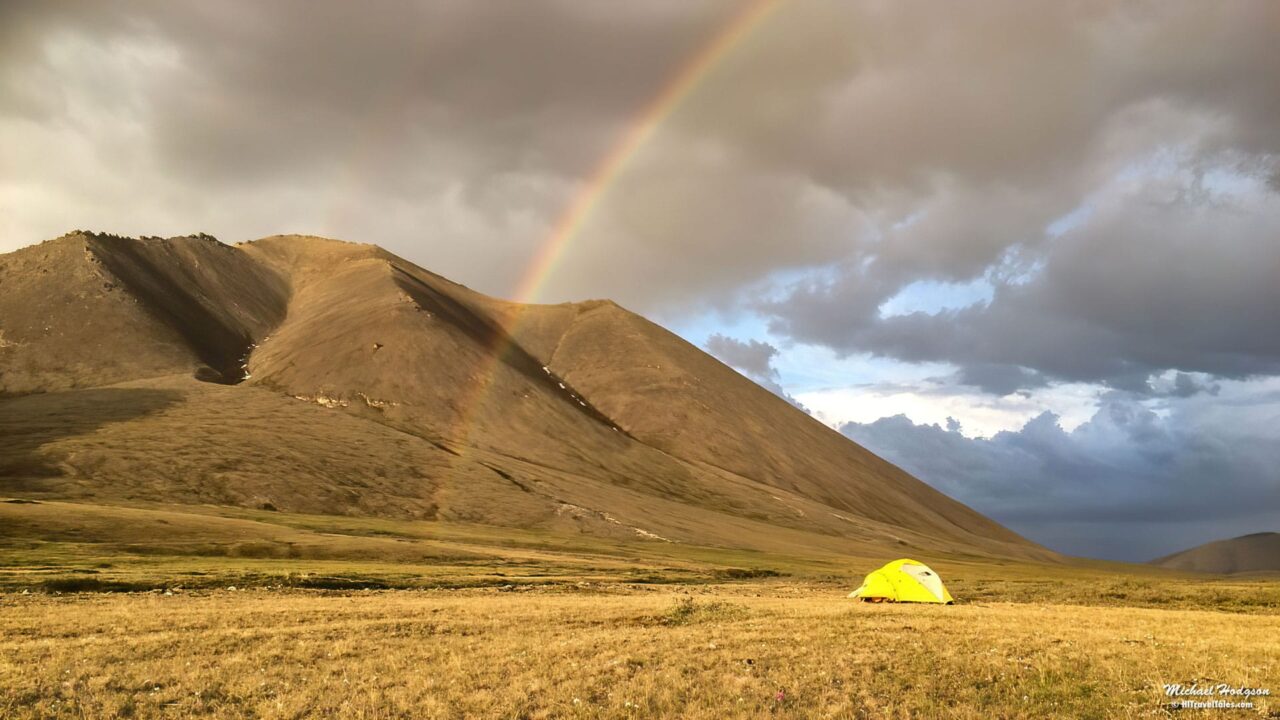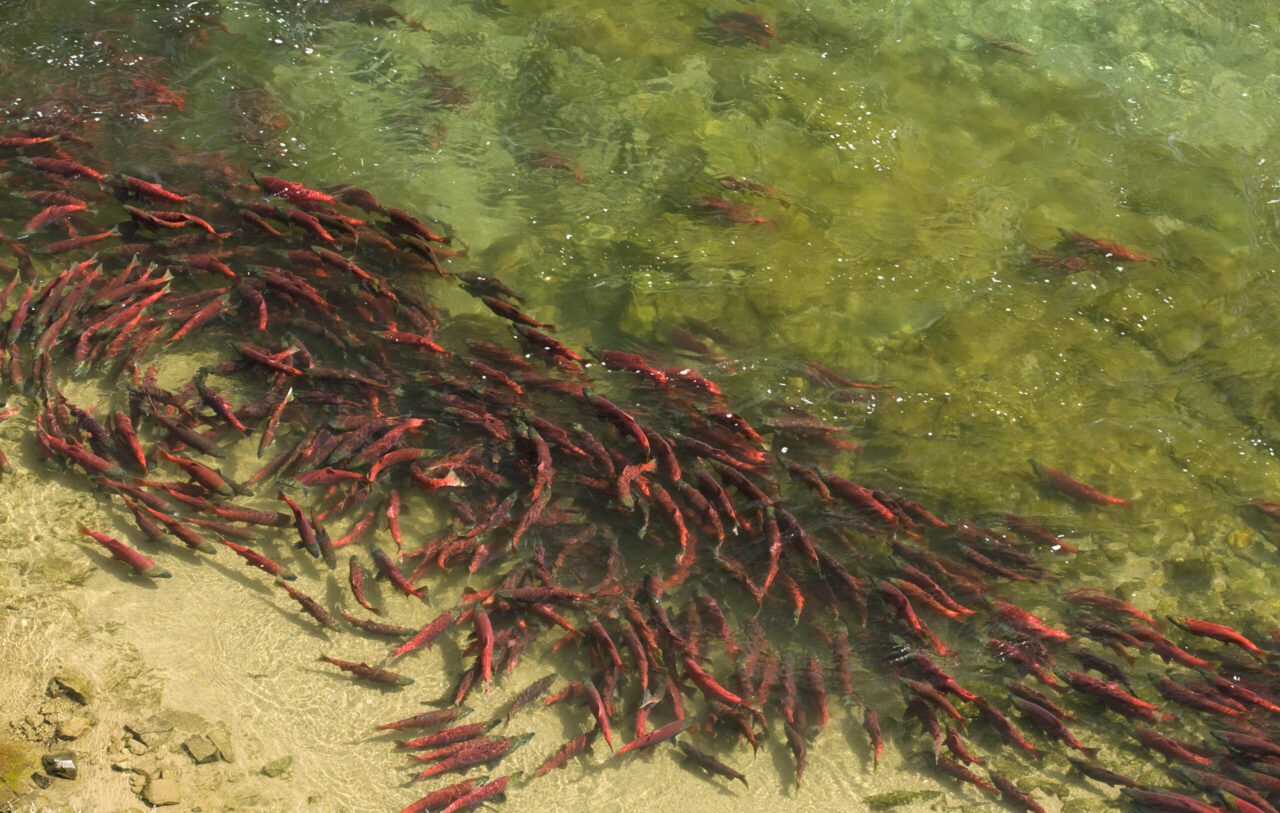A Prayer For The Arctic Refuge
February 17, 2017

A self-described mountain guide, polar and spiritual explorer, Ario Daniel Z’Hoo is preparing to embark on an once-in-a-lifetime expedition to protect one of wildest places on Earth: the Arctic National Wildlife Refuge. For Ario, however, this is a return to a place that captured his heart more than a decade ago.
In 2005 and 2006, Ario skied across the state of Alaska, beginning in Susitna in the south and heading north, crossing the Alaska Range. He continued through Fort Yukon and Arctic Village, traversing the Brooks Range and the Coastal Plain, before completing his five-month journey in Kaktovik. His goal was simple: honor and advocate for the Arctic Refuge and its Coastal Plain, “The Sacred Place Where Life Begins.”
(Photo: Ario Daniel Z’Hoo)
This winter, Ario will make the journey again. “A hug on skis,” he calls it, encircling the boundaries of the Arctic Refuge in a symbol of protection and love. We look forward to sharing updates as his journey unfolds.
Below is an excerpt from Ario as he recounts his original trip – in this piece, he arrives in Arctic Village to rest and recharge before heading north towards the Brooks Range. When not traveling, he lives in the northern Scandinavian mountains of Lapland (northern Finland) – a place he calls “little Alaska.” He also runs the Borealis Wilderness Lodge in the mountains of northern Sweden.
(Photo: Ario Daniel Z’Hoo)
March
The Arctic Refuge (read the entire piece here)
On March 23, in near-darkness, I come to the end of the broad highland overlooking Arctic Village. Down below, in the distance, a seeming mirage dotted sparsely with lights glowing into these now-deeply-familiar northern Alaskan skies. I can finally see the awe-inspiring Brooks Range from here; it is one of the most spectacular, remote, and untraveled mountain systems on the planet.
And to get where I am going, I will have to cross it.
(Photo: Ario Daniel Z’Hoo)
For now, I stake my tent high above the Chandalar River plains. In the mighty silence that by now is part of my very being, I experience a startlingly clear perception of what ground I have covered, of what has actually been accomplished up to this moment. All about and within me, the chanting of Mother Earth seems to rock me. And voices that once seemed lost return, at long last, to strengthen the workings of my own weary heart: the voice of the wolf, which has endured in these parts always. The voices of all the other wildlife that contributes to the balance and beauty of this great territory.
Most powerfully, however, I perceive the song of the Native people of this stark, ancient country, and think: I have walked this vast land as they have done for millennia. Their voices echo unmistakably upon these northern winds. Now it feels as if I, too, do also belong.
I remain here the next day. In truth, I really don’t want to move. For the whole day, I listen. The light, the feeling of peace, these are so intense, so rich where I now find myself. A delightful irony occurs to me here: never in my life have I been so poor in the material sense as I have been during these past five months in the wild, and yet, never in my life have I felt so suffused with the riches of heart and mind.
(Photo: Ario Daniel Z’Hoo)
But soon, the welcome of the Arctic Village community makes me feel even richer still! Jimmy, a celebrated hunter, bundles Beatrice into his snowmobile and rushes out to meet me on my approach. His gaze reveals a deep respect for, and pride in, my long, unlikely journey. He is keenly aware of the difficulties involved in what I have been able to accomplish; clearly, he knows how hard it has been on my soul.
“The whole village is happy for you!” he beams. “Tomorrow, big potlatch (feast and celebration) for you!”
And the potlatch of the following day falls precisely upon my birthday, in which coincidence I delight. Dishes for the feast are prepared by every family, and brought to a great gathering-cabin warmed well by a single stove. There is genuine and free fellowship across all man-made lines on this night. Spirited chants enliven our potlatch, as do bright young dancers clad in traditional dress. Our festivities fill the skies with the deep rumble of steady drumming, the sounds of ancient songs, and those of laughter, shared sentiments, and shared dreams on an ambitious scale. Surrounded by Arctic mountains, rivers, woods, and wildlife, we have come together through a common determination to keep these lands and ways alive, alive and safe from government and industrial greed.
(Photo: Ario Daniel Z’Hoo)
As the Arctic Village potlatch evening unfolds, I am filled with countless emotions. I celebrate, I encourage, I express thanks, I shiver, I cry. My journey is a gesture on behalf of a largely unknown subsistence community perched atop an ever more mechanized, dollar-driven world. It is a combination of physical strength and sheer will that have brought me this far. So why do I now feel so very tiny and insignificant? I am humbled beyond words by all I see around me in these moments, and by all I glimpse beyond the walls of this precious haven in the snow.
Also I am no doubt sensing the impending challenge of the final leg of this journey across Alaska. I have still to traverse the heart of the Arctic National Wildlife Refuge, to march my way up to the very shores of the Arctic Ocean to conclude this 2000-kilometer odyssey of love.
But in the month that follows this day, I find living among the Gwich’in to be the greatest privilege of my entire journey – indeed, of my life. I have come to feel a part of their land and lives in these days, and this indescribable feeling will fuel my efforts in the final stage of the trek.
(Photo: Ario Daniel Z’Hoo)
By the end of March, after about one week of pure rest and renewal, I greet the whole village in the Community Hall. Not a single soul is missing; the children sit front and center. Their expression tells me they understand this is a special day, a special moment in the life of the village.
“You will walk again over the trails of our ancestors.” These are among the last words spoken to me by Chief Edward. “And over the trails of the caribou, whose herds soon will reach the Arctic Ocean shores for which you are now headed. There the caribou will calve once more, as they have always done.”
Then, with similar gravity, the chief addresses his people, saying: “This man has come from a very far place in order to save our land; I’d have wished for one among us to do what he is doing now.” After so saying, Chief Edward turns to me; his parting gesture is unexpected.
“I bow before you,” he intones, before removing his hat and bending low.
The colossal lump in my throat drives me from the room almost immediately thereafter, for I can say, I can hear no more. The assembly begins cheering for me at the top of their voices; they follow me out to hug me and wish me safe travels. I harness myself to the little red sled and finally begin to ski away from Arctic Village.
I know all too well that I shall not see the face of another human being again until about a month from now. But the encouragement of the people at Arctic Village will warm me each day of my lone trek as I walk, in the consciousness of love and gratitude, toward Alaska’s northern shores.
The Coastal Plain is truly the nursery of America’s Arctic, the biological heart of the Arctic Refuge, and to the Gwich’in people of Alaska and Northern Canada, it is sacred land: “Iizhik Gwats’an Gwandaii Goodlit” or the “Sacred Place Where Life Begins.” Today, the Gwich’in still depend on the porcupine caribou just as they have for generations.
Please urge your senators to pledge that they will protect the Coastal Plain of the Arctic Refuge from oil drilling and industrial development. Together, we can help ensure the survival of the people and wildlife that call the Refuge home.










